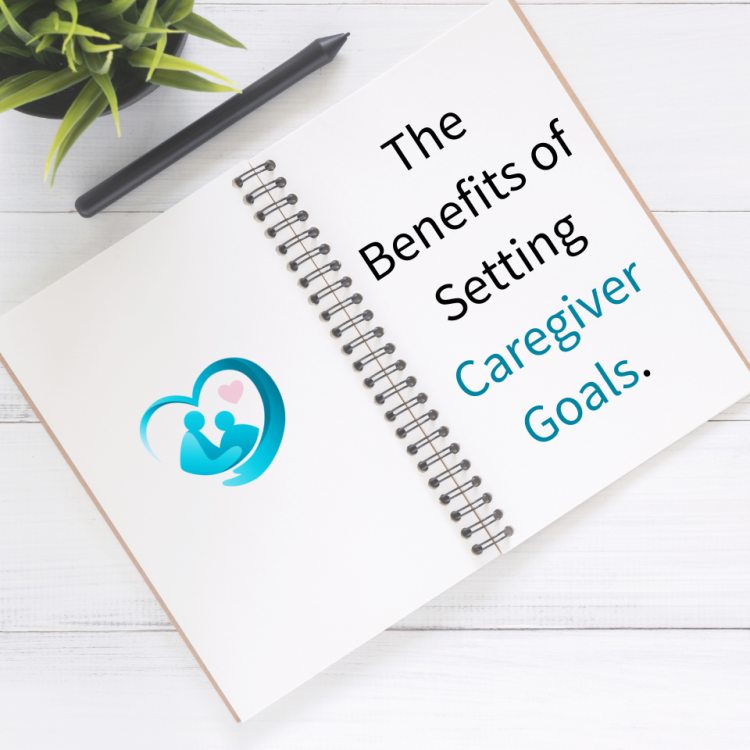Whenever a new year arrives, it’s natural to get into “resolution” mode. You start thinking about what you want to achieve and you might even start committing to paper a plan to reach those achievements.
Whether you consider them resolutions or goals, one thing is for sure: As a caregiver, you should definitely be setting some specifically for your role.
Let’s start by taking a look at some of the key benefits of setting caregiving goals. After, you will find a list of 10 goals you should consider making your own to be the most effective caregiver you can be.
8 Benefits of Setting Caregiving Goals
- Goals prompt you to really think about the short, mid and long term in any aspect of life. As a caregiver, reacting to unexpected crises becomes a given. However, goals can help you to think about likely scenarios and create a plan for them to reduce overwhelm and burnout.
- Goals are motivating, and that means you will be more driven to create that plan for your caregiving role and responsibilities. You will especially notice the impact on those aspects of caregiving that can be planned. These include setting up a budget or speaking with your manager to create a workplace plan that takes into consideration your caregiving responsibilities.
- Goals make your caregiver role real. Research shows that many caregivers do not identify with their role. Once you enter into the goal-setting mindset, you can no longer play down the responsibilities you are faced with, and any potential stress or burden you feel.
- Setting caregiver goals also increases your chance of being effective in your role. That increased motivation to plan, set milestones, and take the necessary actions to meet them — all benefits of setting goals — significantly boosts the likelihood that you will be more successful as a caregiver.
- Goal setting can be a powerful stress reliever. Caregivers experience stress in a variety of ways, including the number of responsibilities they have and the types of responsibilities.
For example, financial burden or caring for a loved one with a particularly challenging condition such as dementia can significantly increase stress. Also, stress can be intrinsic, such as your expectations for yourself as a caregiver or feelings of guilt or inadequacy.
Setting goals helps you to break down big tasks into smaller ones, which reduces stress. It also helps to create a sense of readiness, so you are less likely to be overwhelmed by those unexpected caregiving responsibilities.
- Caregiving goals can also help you to prioritize looking after yourself. Practicing self-care is essential for coping with stress in your regular daily life but also from your caregiving duties. It triggers you to look at how caregiving is impacting your life holistically — personal health, family, friends, work, finances, and life goals.
- Goal-setting boosts brain power. As a caregiver, you need to rely on memory, focus, problem-solving and mental resilience. When you set and pursue goals, your brain releases dopamine, which triggers you to take action to meet those goals.
Your frontal lobe also revs up, helping your brain to determine what you need to do to meet your goals. And the amygdala and frontal lobe also join forces to ensure that you stay focused to meet your goals.
- Having goals also sets you up for intrinsic or extrinsic rewards. For instance, you will feel better about your role as a caregiver if you meet a planned milestone or outcome.
Let’s say your loved one’s financial or estate papers are in disarray, which is causing stress for them and you as their caregiver. Once you set a goal to get those papers organized and take the necessary steps to do so, you will feel a great sense of achievement once it is completed.
Your loved one will also very likely show appreciation for what you have done. And both of you will enjoy being less stressed going forward when dealing with financial and estate matters.
Caregiving Goals Every Caregiver Should Set

- Determine what both you and your loved one expect to get out of your caring for them.
- Ensure that all medical and health documents are organized and in a safe, accessible place.
- Get support or help — from family members, community organizations, caregiver networks or groups, professional caregivers, or senior care specialists.
- Learn as much as you can about your elderly loved one’s health status or medical conditions.
- Use more caregiver apps to simplify your daily responsibilities and long-term planning.
- Get family finances in order. Set a date to speak with your elderly loved one about expenses. If you help to support your loved one financially, also review your own finances. In both cases, set budgets.
- Research and apply for government funding and tax breaks for caregivers.
- If you think your loved one is showing signs of needing additional care, plan a date to speak to them about it. Also research long-term care or assisted living options.
- Create a plan with your employer to better meet your caregiver responsibilities.
- Get a medical checkup to get a clear picture of your own health status. Then create a self-care plan to address any medical needs revealed during your checkup as well as for your overall health and lifestyle goals.

